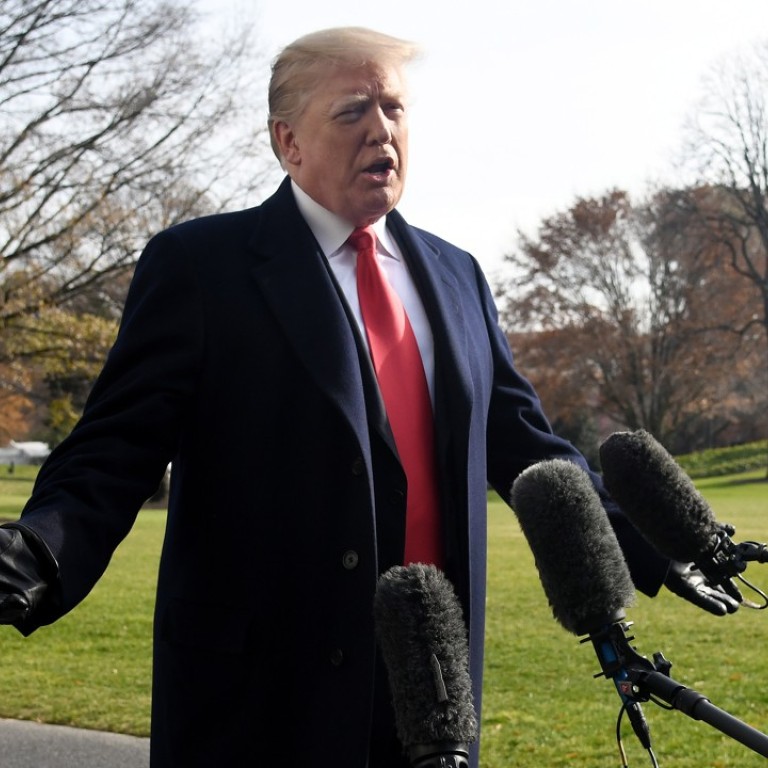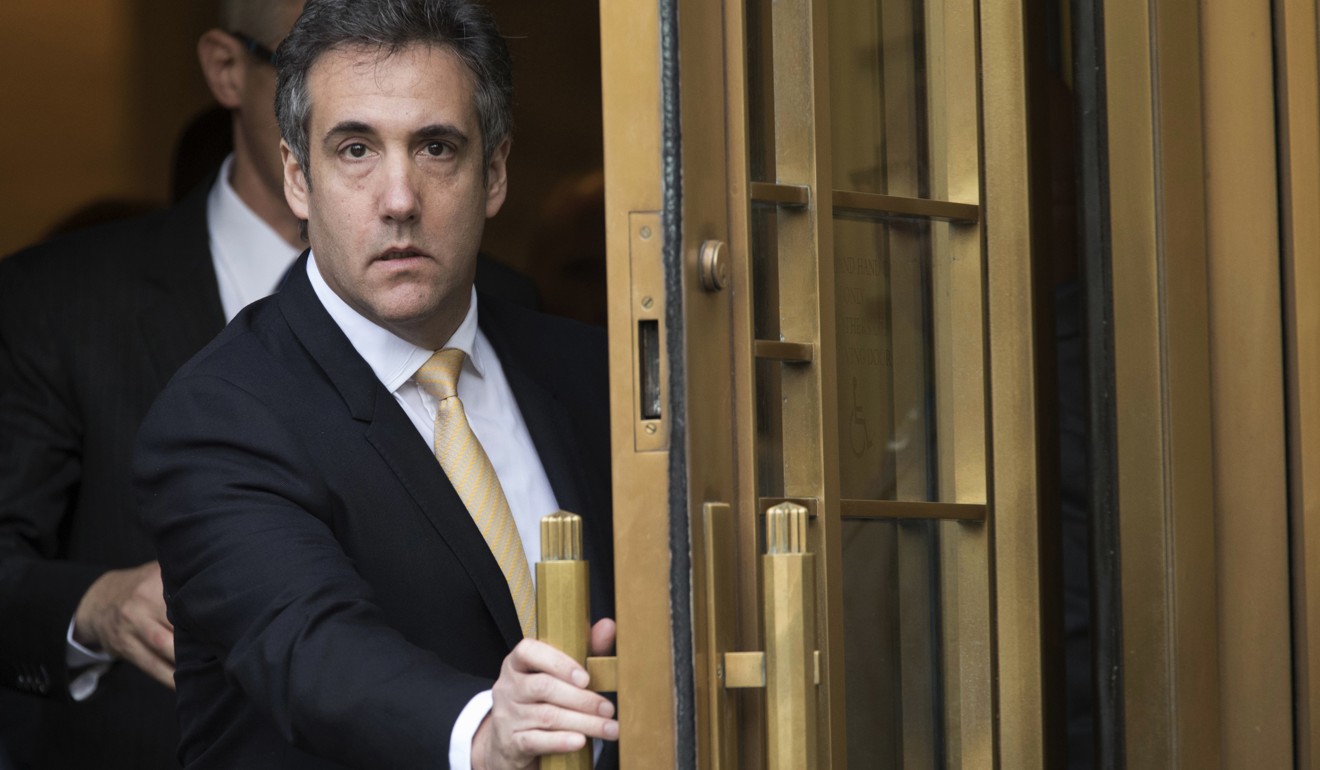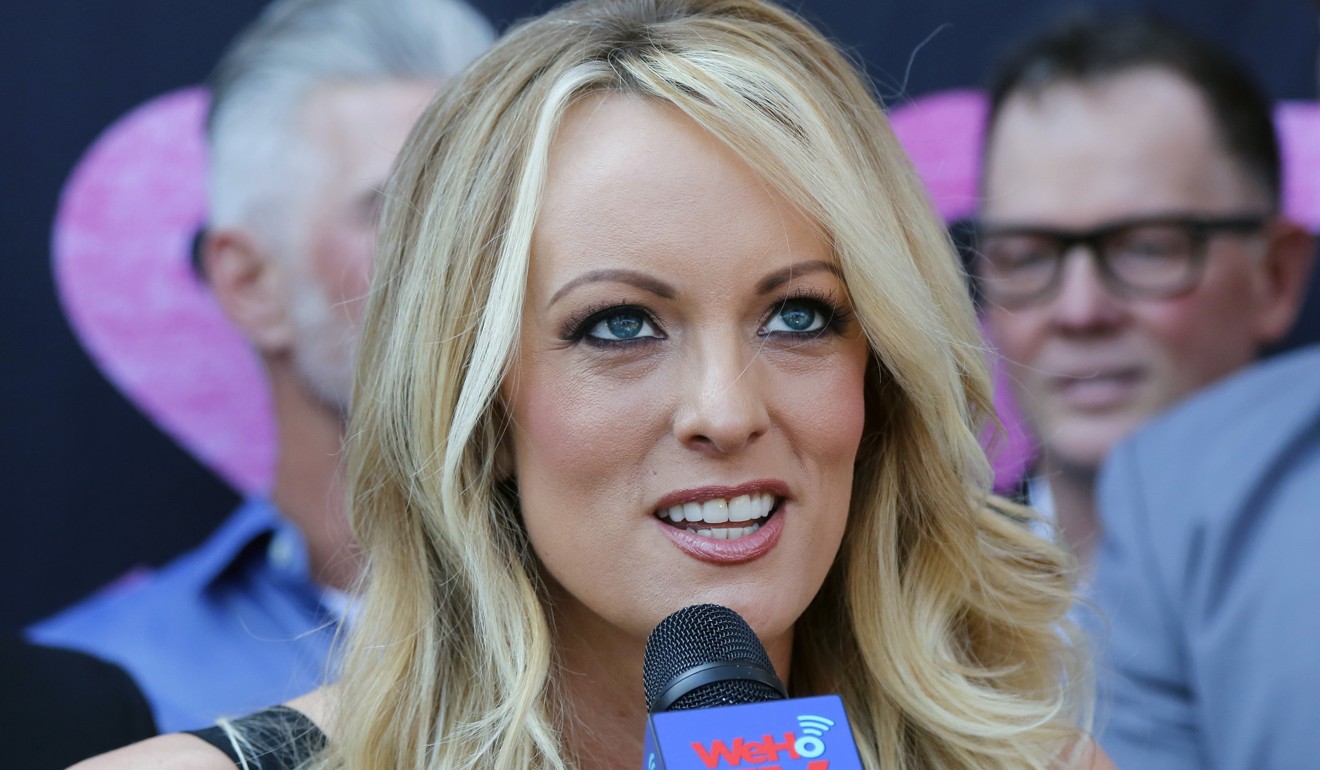
Trump: hush money to women was ‘simple private transaction’, not illegal campaign spending
- US president says if anyone broke the law by paying women to stop them telling their stories about him, it was his former lawyer Michael Cohen
Trump sought to counter assertions in a court filing on Friday that he had directed his lawyer at the time Michael Cohen to try to silence the women in a bid to influence the 2016 presidential election.

Cohen has pleaded guilty to the alleged crime, saying he was directed by Trump.
In his tweets, Trump suggested the payments were being scrutinised only because prosecutors have not been able to find evidence of collusion between his 2016 campaign and Russia. He also appeared to suggest prosecutors are taking their cues from Democrats.
“So now the Dems go to a simple private transaction, wrongly call it a campaign contribution, which it was not,” Trump wrote.
He further asserted that even if the payments could be considered campaign contributions, he should be facing a civil case rather than a criminal case. And he said, Cohen should be held responsible, not him.
“Lawyer’s liability if he made a mistake, not me,” Trump wrote. “Cohen just trying to get his sentence reduced. WITCH HUNT!”
In the tweets, Trump also twice misspelled “smoking gun” as “smocking gun” as he quoted a commentator on Fox News talking about the Russia probe by special counsel Robert Mueller.
At issue are the payments to two women who alleged sexual relationships with Trump before he ran for president.

In August 2016, Playboy model Karen McDougal reached an agreement with American Media, publishers of the National Enquirer, that ensured she would not share her story about a long relationship with Trump. In October of that year, adult film actress Stormy Daniels received US$130,000 to similarly stay quiet about a liaison she said happened a decade before.
Both of those agreements were handled by Cohen, as he admitted in court in August when he pleaded guilty to two campaign finance charges, among others.
Prosecutors argue that because Cohen was an agent of the Trump campaign, the payments to McDougal and Daniels were campaign contributions in excess of federal limits and not unrelated expenses.
“With respect to both payments, Cohen acted with the intent to influence the 2016 presidential election,” the filing from prosecutors in New York says. “Cohen coordinated his actions with one or more members of the campaign, including through meetings and phone calls, about the fact, nature, and timing of the payments. In particular, and as Cohen himself has now admitted, with respect to both payments, he acted in coordination with and at the direction of Individual-1.”
Elsewhere, filings from prosecutors make clear Individual-1 refers to Trump.

In trying to make the case the payments to McDougal and Daniels should be a civil matter, rather than a criminal case, Trump pointed to a civil fine paid by President Barack Obama’s campaign in 2013.
In April 2012, the Federal Election Commission released an audit of Obama’s 2008 campaign that found his committee did not disclose the identities of 1,312 donors responsible for nearly US$2 million in contributions in the final weeks of the campaign.
Under federal election law, campaigns must file special notices to the FEC of last-minute contributions of US$1,000 or more that are received in the final weeks before Election Day.
Eight months after the audit, Obama’s campaign agreed to pay a US$375,000 fine, which was one of the largest penalties in the agency’s history.

